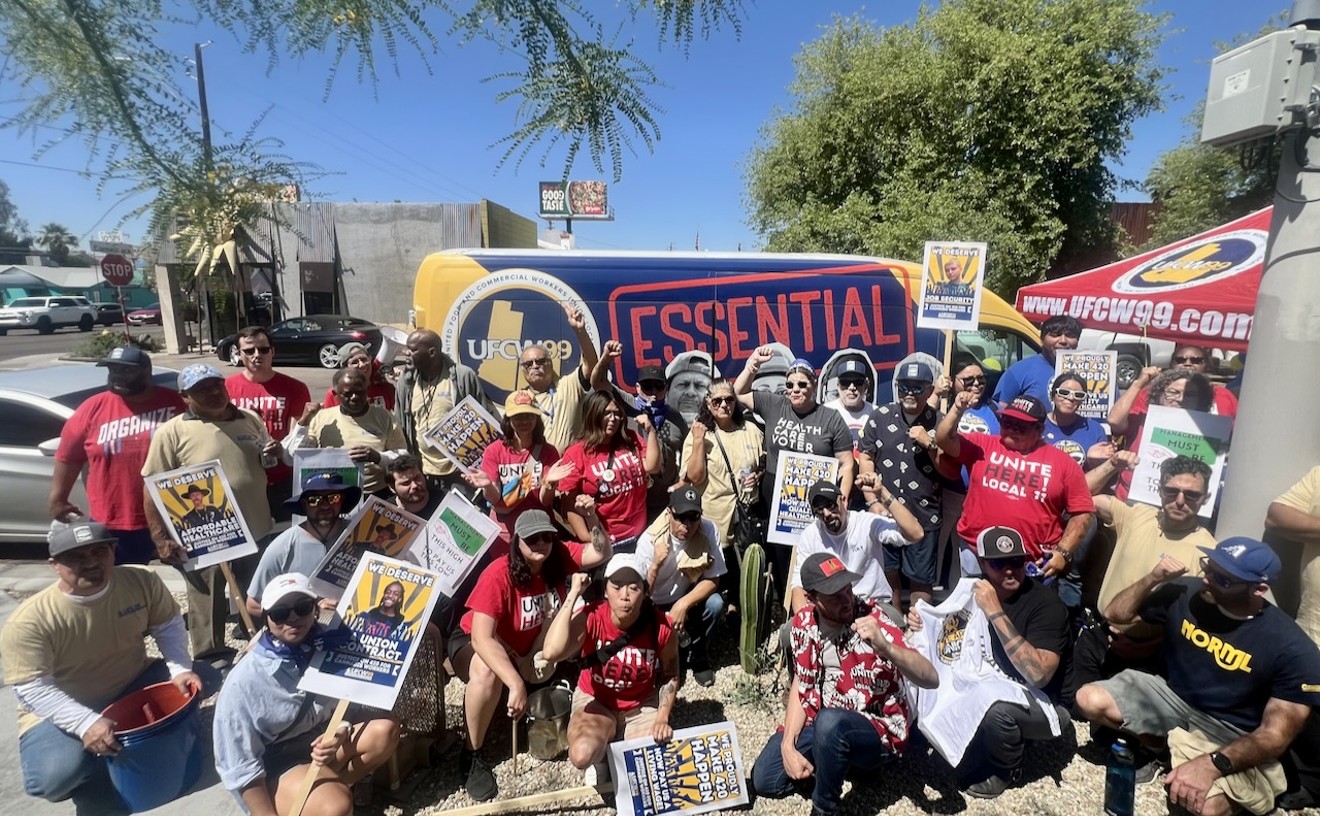A Phoenix financial technology company that Governor Doug Ducey lauded last year as a boon to Arizona’s economy seeks to avoid bankruptcy after dramatically under-delivering on 2019 goals, according to an email from its founder leaked to Phoenix New Times.
“Overall, we are in the Valley of Death right now,” said SurchX CEO Robert Maynard in the October 10 email to investors. “In my last update I told you we were living hand-to-mouth. We are out of cash right now.”
Maynard founded SurchX, which helps businesses push credit card merchant processing fees onto cardholders, in 2017.
But he’s perhaps best known for co-founding the identity theft protection company LifeLock in 2005, then resigning after New Times exposed his deceitful marketing tactics and previous troubles with the Federal Trade Commission. He wasn't LifeLock's only problem, though: The so-called "identity theft protection company" has since been forced to pay more than $100 million in settlements to consumers and the Federal Trade Commission for false advertising.
Maynard also founded the internet service provider company Internet America in 1995, which went public in 1998, a year after he'd resigned.
With SurchX, Maynard has boasted grand plans for growth. In December, he moved the startup from an office by Tempe Town Lake to an entire floor of downtown Phoenix high-rise Two Renaissance Square, and announced projections to hire 150 new employees. Ducey celebrated the plans, saying in a statement that “SurchX will create 400 high-value jobs and add to the strength of Arizona’s innovation ecosystem.”
That didn’t quite pan out. As Phoenix Business Journal reported in August, the company raised an additional $3 million from investors, but was having "slower-than-anticipated" growth.
The Arizona Commerce Authority at one point determined that SurchX could qualify for grants and tax credits from the state valued at more than $4 million. But the company never applied for or received money from either incentive program, a spokesperson for ACA said.
“It should be noted all of the ACA financial programs are performance-based,” the spokesperson said.
Today, the company has just 27 employees, Maynard told New Times. With a potential eviction order from the Two Renaissance Square address looming, the company recently moved into Galvanize, a shared workspace in Phoenix, Maynard confirmed. In his email to investors, Maynard explained the company has forced layoffs, cut pay to employees, delayed paychecks, and slashed benefits.
Maynard has called SurchX his third “unicorn” company, a nickname used for private startups valued at over $1 billion. A large, bronze statue of a unicorn welcomes visitors at SurchX’s office. Perhaps accordingly, Maynard responded with optimism to questions about his company’s dire financial straits.
“It’s not unusual for a startup to go through this kind of pain,” he told New Times. “Google ran out of cash in its formative years, as did LifeLock. It’s all part of the birthing process.”
Maynard has publicly attributed some past issues, such as personal bankruptcy filings, to his 2001 diagnosis of bipolar disorder. He’s since made news for prioritizing workplace mental health, including offering brain scans, meditation, and yoga in the office, as well as investing in employee health plans.
The company still pays for employee health insurance, even though it’s not required to with fewer than 50 employees. But this year’s plan is less robust than last year's plan, Maynard said, for multiple reasons, including budget challenges.
Despite a grim financial reality, Maynard claims the business is poised for success. In his investor email this week, he said he expects the company to raise the next two years’ worth of cash requirements in the next month.
“Although we’re in the desert, those ... who see the whole picture can see the ocean,” the email said. “This is a pivotal time for SurchX and there is great risk right now. But we have built something very valuable. Now is not the time for the faint of heart.”
[
{
"name": "Air - MediumRectangle - Inline Content - Mobile Display Size",
"component": "18478561",
"insertPoint": "2",
"requiredCountToDisplay": "2"
},{
"name": "Editor Picks",
"component": "16759093",
"insertPoint": "4",
"requiredCountToDisplay": "1"
},{
"name": "Inline Links",
"component": "17980324",
"insertPoint": "8th",
"startingPoint": 8,
"requiredCountToDisplay": "7",
"maxInsertions": 25
},{
"name": "Air - MediumRectangle - Combo - Inline Content",
"component": "16759092",
"insertPoint": "8th",
"startingPoint": 8,
"requiredCountToDisplay": "7",
"maxInsertions": 25
},{
"name": "Inline Links",
"component": "17980324",
"insertPoint": "8th",
"startingPoint": 12,
"requiredCountToDisplay": "11",
"maxInsertions": 24
},{
"name": "Air - Leaderboard Tower - Combo - Inline Content",
"component": "16759094",
"insertPoint": "8th",
"startingPoint": 12,
"requiredCountToDisplay": "11",
"maxInsertions": 24
}
]












